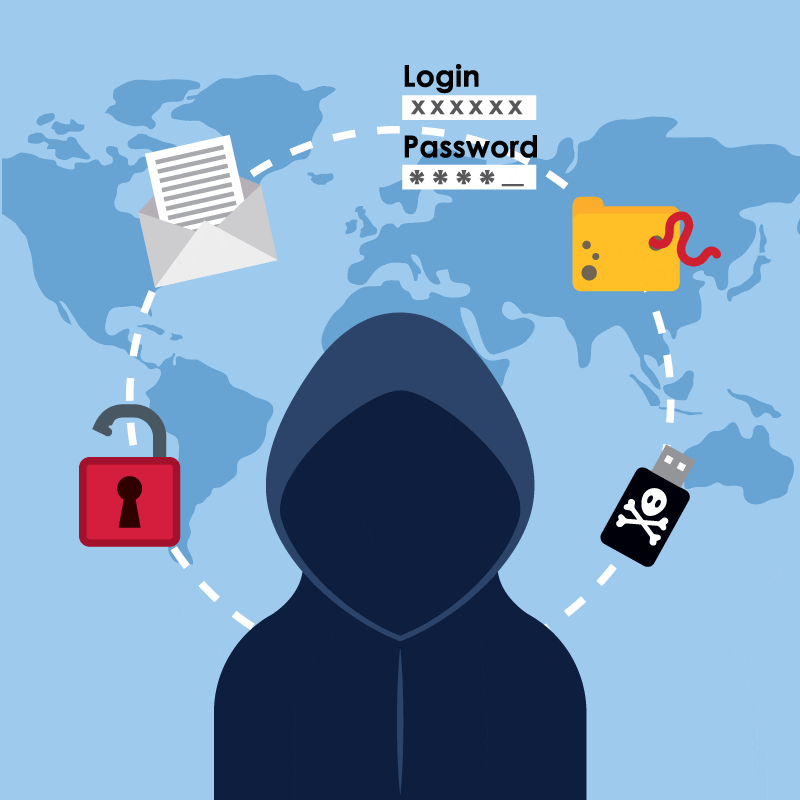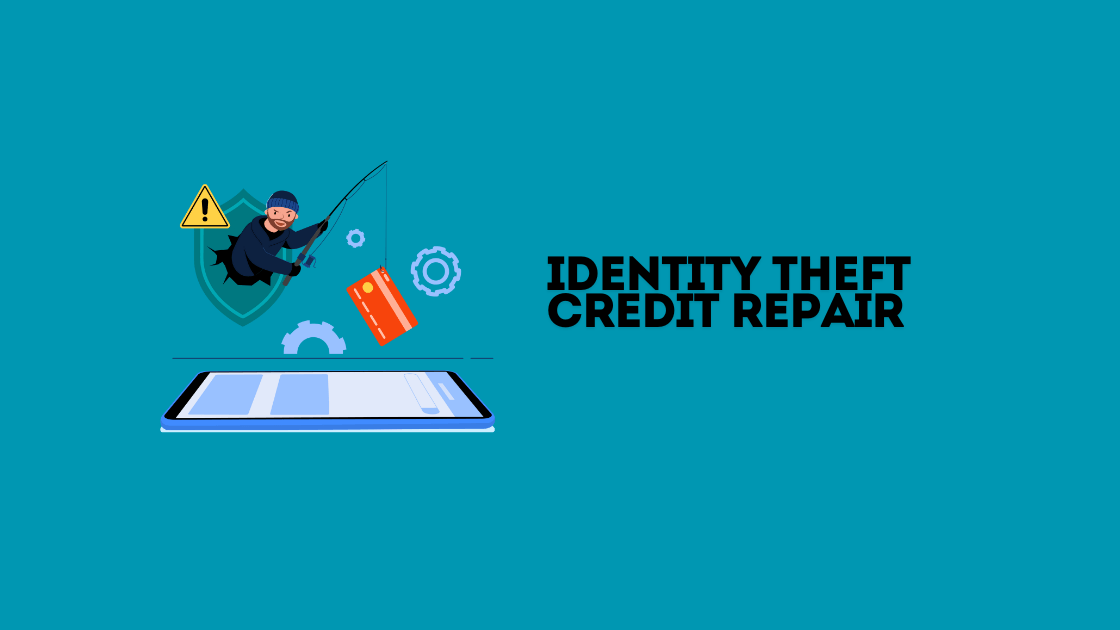Identity Theft Credit Repair: Safeguard Your Score Now!
Identity theft credit repair involves removing fraudulent activity from your credit report and restoring your credit score. It’s a crucial step to regain financial stability.
Identity theft can severely damage your credit score and financial health. Thieves use your personal information to open accounts, take out loans, or make purchases, leaving you with debt. Quick action is essential for minimizing damage. Start by contacting credit bureaus to report the fraud and request a freeze on your credit.
Notify creditors of the theft and dispute fraudulent charges. Monitoring your credit regularly can help catch suspicious activity early. Consider working with a credit repair service for professional assistance. Protecting your personal information is vital to prevent future incidents.

Credit: www.debt.org
The Rise Of Identity Theft
Identity theft is a growing menace in our digital age. With more personal data online, the risk increases. Let’s explore the rise of identity theft and its implications.
Why It’s A Growing Concern
Identity theft has become a significant issue in recent years. More people are sharing personal information online. This trend makes it easier for thieves to exploit weaknesses.
Financial loss is a major concern. Victims often face severe financial damage. Rebuilding credit after identity theft can be challenging. This process can take months or even years.
Emotional distress is another factor. Victims often feel violated and anxious. The long-term impact can be profound.
Common Methods Used By Thieves
Thieves use various methods to steal identities. Here are some common tactics:
Phishing: Scammers send fake emails or texts. They trick people into revealing personal information.
Data
Immediate Steps After Identity Theft
Discovering that you are a victim of identity theft can be overwhelming. Taking prompt action is crucial to minimize damage and start the credit repair process. Here are the immediate steps you need to follow.
Contact Credit Bureaus
The first step is to contact the major credit bureaus. Inform them about the identity theft and request a fraud alert on your credit report. This alert will notify creditors to take extra precautions before opening new accounts.
Credit Bureau | Contact Number |
|---|---|
Equifax | 1-800-525-6285 |
Experian | 1-888-397-3742 |
TransUnion | 1-800-680-7289 |
Report To The FTC
Next, report the identity theft to the Federal Trade Commission (FTC). Visit their website and fill out the Identity Theft Report. This report helps in documenting the theft and can be used as proof.
Go to IdentityTheft.gov.
Complete the online form.
Save and print the Identity Theft Report.
File A Police Report
Filing a police report is also essential. Go to your local police station and provide them with the Identity Theft Report from the FTC. This will help in creating a legal record of the incident.
Bring a copy of your FTC Identity Theft Report.
Provide any other relevant documents.
Request a copy of the police report for your records.
Understanding Your Credit Report
Understanding your credit report is crucial for identity theft credit repair. A credit report shows your credit history, debts, and financial behavior. It helps you spot errors and fraud, affecting your credit score.
Reading Your Report Accurately
Reading your credit report accurately ensures you catch mistakes early. Follow these steps for an accurate read:
Get your credit report from all three bureaus: Experian, Equifax, and TransUnion.
Check your details: name, address, and Social Security Number.
Review all accounts: loans, credit cards, and mortgages.
Look at your credit inquiries: who checked your credit and when?
Verify public records: bankruptcies, judgments, or liens.
Identifying Fraudulent Entries
Identifying fraudulent entries is vital for credit repair. Fraudulent entries can harm your credit score. Look for these signs:
Accounts you don’t recognize.
Wrong amounts for your debts.
Unauthorized credit inquiries.
Incorrect personal details.
|
Red Flag |
Description |
|---|---|
|
Unknown Accounts |
Accounts you never opened. |
|
Incorrect Balances |
Debt amounts that are wrong. |
|
Unauthorized Inquiries |
Credit checks you didn’t approve. |
|
Wrong Personal Info |
Details that don’t match yours. |
Regularly checking your credit report helps keep your credit safe. Act quickly if you find any errors or fraud. Contact the credit bureaus to correct mistakes and report fraud.
Disputing Errors On Your Report
Identity theft can wreak havoc on your credit report. Addressing errors quickly is essential. Disputing inaccuracies on your report can improve your credit health. This process involves gathering evidence and writing a dispute letter. Follow these steps to ensure a smooth dispute process.
Gathering Evidence
Start by obtaining a copy of your credit report. You can get a free report from the major credit bureaus. Look for any suspicious activity or incorrect information. Highlight these errors for easy reference. Collect supporting documents to back up your claims. This may include:
Bank statements
Receipts
Identification records
Communication logs
Organize these documents neatly. This will make your dispute more compelling. Accurate evidence is key to resolving disputes.
Writing An Effective Dispute Letter
Crafting a clear and concise dispute letter is crucial. Address the letter to the credit bureau reporting the error. Include your full name, address, and contact information. Specify the error you are disputing and explain why it’s incorrect. Attach copies of the supporting documents you gathered.
Here’s a basic format for your dispute letter:
Your NameYour AddressCity, State, ZIP CodeDateCredit Bureau NameCredit Bureau AddressCity, State, ZIP Code
Dear [Credit Bureau Name],
I am writing to dispute the following information in my file. I have circled the items I dispute on the attached copy of the report I received. These items are [describe each item briefly but clearly].
I am requesting that the disputed items be investigated and removed from my file. I have enclosed copies of [describe any enclosed documents, such as bank statements] that support my position.
Please re-investigate these matters and correct the disputed items as soon as possible.
Sincerely,
Your NameKeep your tone professional and factual. Send your letter via certified mail to track it. This ensures the bureau receives your dispute. Follow up if you don’t hear back within 30 days.
Credit Freeze Vs. Fraud Alert
Identity theft can damage your credit. Two options can help a credit freeze and a fraud alert. Both protect your credit but work differently. Understanding their benefits and uses is crucial.
Benefits Of Each Option
|
Credit Freeze |
Fraud Alert |
|---|---|
|
Prevents new credit accounts |
Alerts creditors to verify identity |
|
Free of charge |
Free of charge |
|
Lasts until you lift it |
Lasts 90 days (extendable) |
|
Enhanced security |
Less intrusive |
How And When To Use Them
Knowing when to use each option is key. Use a credit freeze if you suspect identity theft. This stops new accounts from being opened.
To place a credit freeze:
Contact each credit bureau.
Provide necessary identification.
Receive a PIN to lift the freeze later.
Use a fraud alert if you want a lighter touch. This alerts creditors to verify your identity first.
To place a fraud alert:
Contact one credit bureau.
They will notify the other bureaus.
Provide identification if needed.
Both options offer protection. Choose based on your needs.
Rebuilding Your Credit Score
Identity theft can damage your credit score. Rebuilding it takes effort and time. Follow these steps to get back on track.
Responsible Credit Use
Using credit responsibly is essential. Pay your bills on time. Keep your credit utilization low.
Pay off balances monthly.
Avoid maxing out credit cards.
Monitor your credit report regularly.
Responsible habits help improve your credit score. They show lenders you are trustworthy.
Secured Credit Cards And Loans
Secured credit cards can be a great tool. They require a cash deposit. This deposit acts as your credit limit.
|
Feature |
Benefit |
|---|---|
|
Low credit limit |
Reduces spending risk |
|
Regular reporting |
Builds positive credit history |
Secured loans work similarly. They need collateral, like a savings account. These loans help rebuild credit by showing consistent payments.
Both options show you can manage credit well. They help you rebuild your credit score efficiently.
Legal Actions And Rights
Identity theft can wreak havoc on your credit. Knowing your legal rights can help you regain control. Legal actions are crucial in repairing credit after identity theft.
Seeking Legal Advice
Legal advice is vital in complex identity theft cases. A lawyer can guide you through the legal process. They can help you understand your rights and options.
Hiring a lawyer can be costly. Some organizations offer free legal services. Contact your local legal aid office for help.
Understanding The Fair Credit Reporting Act
The Fair Credit Reporting Act (FCRA) is essential for credit repair. It protects consumers from unfair practices. Understanding the FCRA can help you challenge errors on your credit report.
Under the FCRA, you have the right to:
Request a free credit report annually.
Dispute incorrect information.
Have inaccurate data corrected or deleted.
Be notified if information in your report has been used against you.
Knowing these rights can empower you to take action. Always check your credit report for mistakes. File disputes promptly to correct errors.
Preventive Measures To Secure Your Identity
Identity theft can ruin your financial stability. It is crucial to take preventive measures. These steps help to secure your personal information and protect your credit. Below are effective methods to safeguard your identity.
Regular Credit Monitoring
Regular credit monitoring helps detect suspicious activities early. It ensures that any unauthorized transactions are caught quickly.
Subscribe to credit monitoring services.
Review your credit report monthly.
Check for errors or unfamiliar accounts.
Report any discrepancies immediately.
|
Service Provider |
Features |
Cost |
|---|---|---|
|
Experian |
Daily credit report updates |
$19.99/month |
|
Equifax |
Identity theft insurance |
$9.95/month |
|
TransUnion |
Credit score tracking |
$24.95/month |
Safe Online Practices
Adopting safe online practices is essential to prevent identity theft. Always use strong and unique passwords for each account.
Enable two-factor authentication (2FA) on all accounts.
Update passwords regularly and avoid using the same password for multiple accounts.
Be cautious of phishing emails and links.
Ensure your computer has updated antivirus software.
Avoid sharing sensitive information online. This includes your Social Security number, bank details, and passwords. Always verify the legitimacy of the websites you visit.
Future Of Identity Theft Protection
The future of identity theft protection is evolving rapidly. New technologies and laws are emerging to safeguard personal information. These advancements aim to prevent fraud and secure financial data. Let’s explore the key aspects shaping this future.
Technological Advancements
Technology is playing a crucial role in identity theft protection. Artificial Intelligence (AI) helps detect suspicious activities. AI algorithms identify unusual patterns and alert users immediately. Blockchain technology offers secure and tamper-proof transactions. This adds an extra layer of security to personal information.
Biometric authentication is becoming more common. Fingerprints, facial recognition, and voice identification enhance security. These methods are harder to breach compared to traditional passwords. Two-factor authentication (2FA) adds an additional security step. This requires users to verify their identity twice, making it tougher for thieves.
Encryption techniques are also improving. Stronger encryption means that even if data is stolen, it’s harder to decode. VPNs (Virtual Private Networks) protect data during transmission. This ensures that personal information remains private and secure.
Legislative Changes
New laws are being introduced to combat identity theft. Governments are enacting stricter regulations to protect consumers. The General Data Protection Regulation (GDPR) in Europe sets a high standard. It requires companies to handle personal data with care. Heavy fines are imposed for non-compliance, encouraging better practices.
The United States has also taken steps. The Identity Theft Protection Act mandates businesses to secure customer data. It also requires them to notify customers in case of a breach. This transparency helps consumers take immediate action.
Data breach notification laws are becoming universal. These laws mandate timely reporting of any data breaches. This quick reporting helps minimize the damage caused by theft. Consumer protection agencies are also playing a vital role. They provide resources and support to victims of identity theft.
The future of identity theft protection looks promising. With technological advancements and legislative changes, personal data will be more secure. Staying informed and adopting these measures can help safeguard your identity.
Credit: www.imaxcredit.com
Can Freezing My SSN Help with Identity Theft Credit Repair?
Freezing your Social Security Number can be a useful step in protecting against identity theft. An ssn freeze to prevent fraud restricts access to your credit report, making it harder for criminals to open accounts in your name. This can help safeguard your financial reputation while working on identity theft credit repair.
Frequently Asked Questions
1. Can You Fix Your Credit After Identity Theft?
Yes, you can fix your credit after identity theft. Report the theft, dispute fraudulent transactions, and monitor your credit reports. Seek assistance from credit bureaus and consider credit monitoring services.
2. Can Identity Theft Be Removed From Credit Report?
Yes, identity theft can be removed from your credit report. Report the fraud to credit bureaus and file a police report. Dispute fraudulent accounts and request a fraud alert.
3. What Is A Credit Sweep For Identity Theft?
A credit sweep for identity theft involves removing fraudulent accounts from a victim’s credit report. This helps restore their credit score.
4. Does Freezing Credit Help With Identity Theft?
Yes, freezing credit helps prevent identity theft. It restricts access to your credit report, blocking new credit accounts. Thieves can’t open new accounts in your name. It’s a strong deterrent against fraud.
5. What Is Identity Theft Credit Repair?
Identity theft credit repair involves restoring your credit after fraudulent activities harm your credit score.
Conclusion
Taking steps to protect your identity can save you from financial stress. Repairing your credit is crucial after identity theft. Stay vigilant and monitor your credit regularly. Use these tips to safeguard your financial future. Remember, proactive measures today can prevent headaches tomorrow.
Stay informed and protect your credit health.







